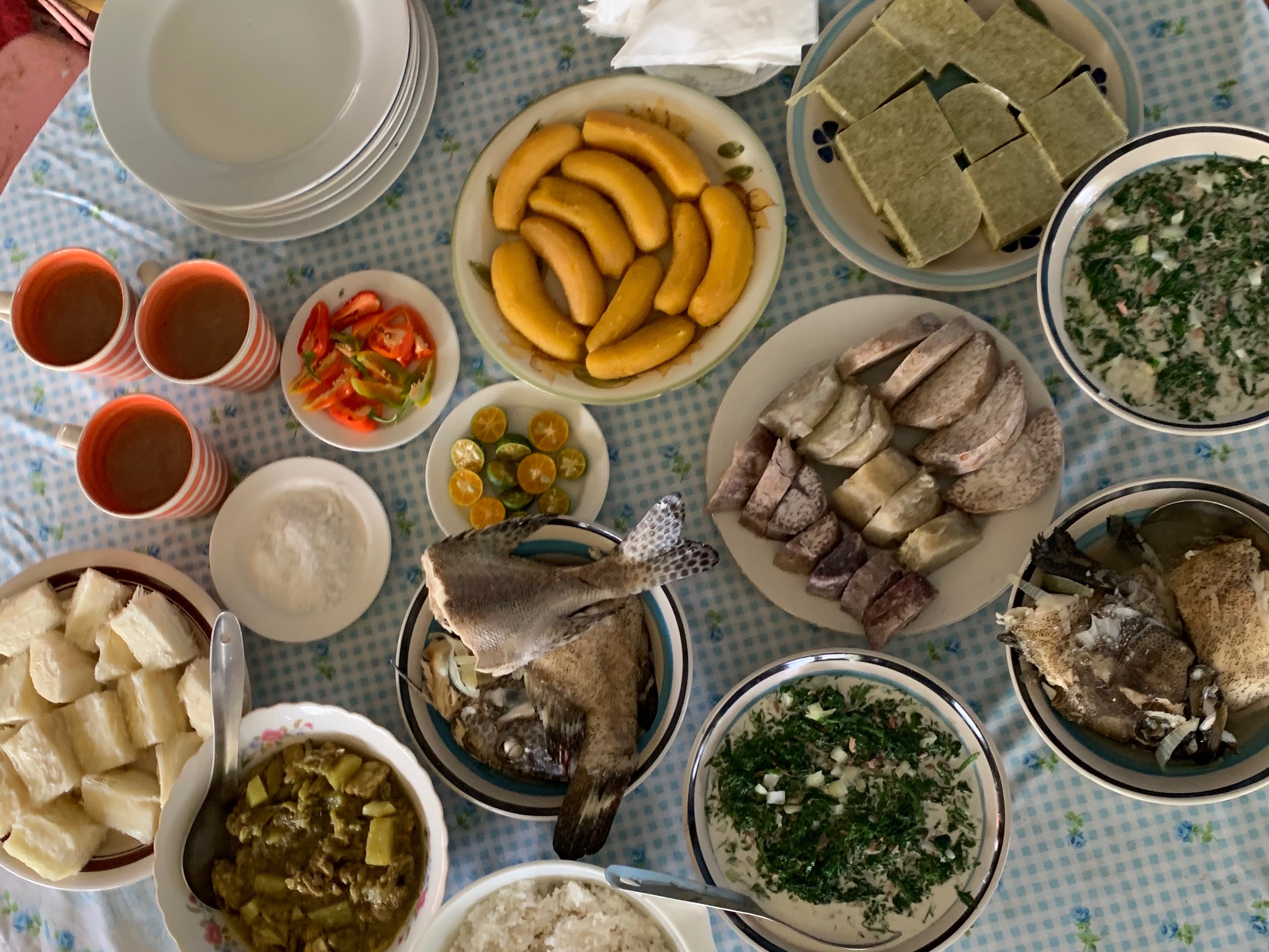Welcome to our special section, Thrive on Campus, devoted to covering the urgent issue of mental health among college and university students from all angles. If you are a college student, we invite you to apply to be an Editor-at-Large, or to simply contribute (please tag your pieces ThriveOnCampus). We welcome faculty, clinicians, and graduates to contribute as well. Read more here.
This past summer, I spent many precious weeks in the dreamy Fijian islands, traversing both jungle and sea to conduct my Davis Projects for Peace fellowship.
I grew vastly. Giggling late at night with my host sisters led to exchanging respective cultural peculiarities, and sharing meals with my host parents led to discussions regarding complex solutions to simple problems and simple solutions to complex problems.
I thank my host family very much for teaching me the Fijian ways of love, life, and laughter. Without them, I would be lost.
Meals are to connect with your family and friends
The members of my host family shared the ups and downs of our days — regularly, throughout the day, whether sharing a cup of tea, buttered toast, or steamed fish. We started each meal by first verbally appreciating both the food in front of us and the beautiful people around us.
Ditch the technology to enjoy the moment
I generally have two reactions to something I enjoy: I smile, and I pull out my phone to snap a quick picture. My host parents taught me the importance of living life so fully, so appreciatively, that social media remains unchecked for the majority of the day.
Appreciate everyone around you
We keep our family and friends around because we love them. They provide us with good times, spreading warmth and happiness throughout our lives. My host family taught me that we should more often voice our feelings of admiration and appreciation openly to those around us.
Keep reminders of your blessings around you
As a traveler, I keep very few possessions with me, purely out of convenience. Upon arrival to my host home, my Fijian mom advised me to keep reminders of people and things I love all around me to evoke positive nostalgia when homesick. Thanks to this wise suggestion, I felt in my element even when stumbling upon uncomfortable geopolitical situations.
Count your blessings, especially when things go wrong
There were times during the execution of my project that I felt absolutely, discouragingly disheartened. I wished all sorts of things were different. My host mom consistently reminded me that regretful thinking patterns do more harm than good, and steered the conversation toward the positives in these obstacles: what I learned, how I can take this lesson to the future, and how I will be moving on.
Stay positive in the face of obstacles
I faced immense challenges, both physical and mental. At one point, I rushed to the hospital after glass shattering my hand. At other times, I anxiously awaited to hear if I had gained the necessary cultural permission from a village headsmen to complete my project in sacred lands. Regardless of unexpected setbacks, my host sisters and parents pep-talked me into perceiving these barriers as my greatest opportunities, and to adjust accordingly with a smile.
Accept the challenge and persevere
Money and time are two precious commodities. They constrain us in ways we sometimes resent, and oftentimes make life very difficult. The bad news, I learned, is that we cannot solve all health care problems at once by formulating some kind of genius public health panacea. The good news, though, is that we can continue to ameliorate suffering, little by little — with a mixture of creativity, persistence, and optimism.
Subscribe here for all the latest news on how you can keep Thriving.
More on Mental Health on Campus:
What Campus Mental Health Centers Are Doing to Keep Up With Student Need
If You’re a Student Who’s Struggling With Mental Health, These 7 Tips Will Help
The Hidden Stress of RAs in the Student Mental Health Crisis


